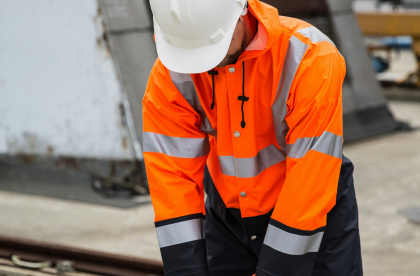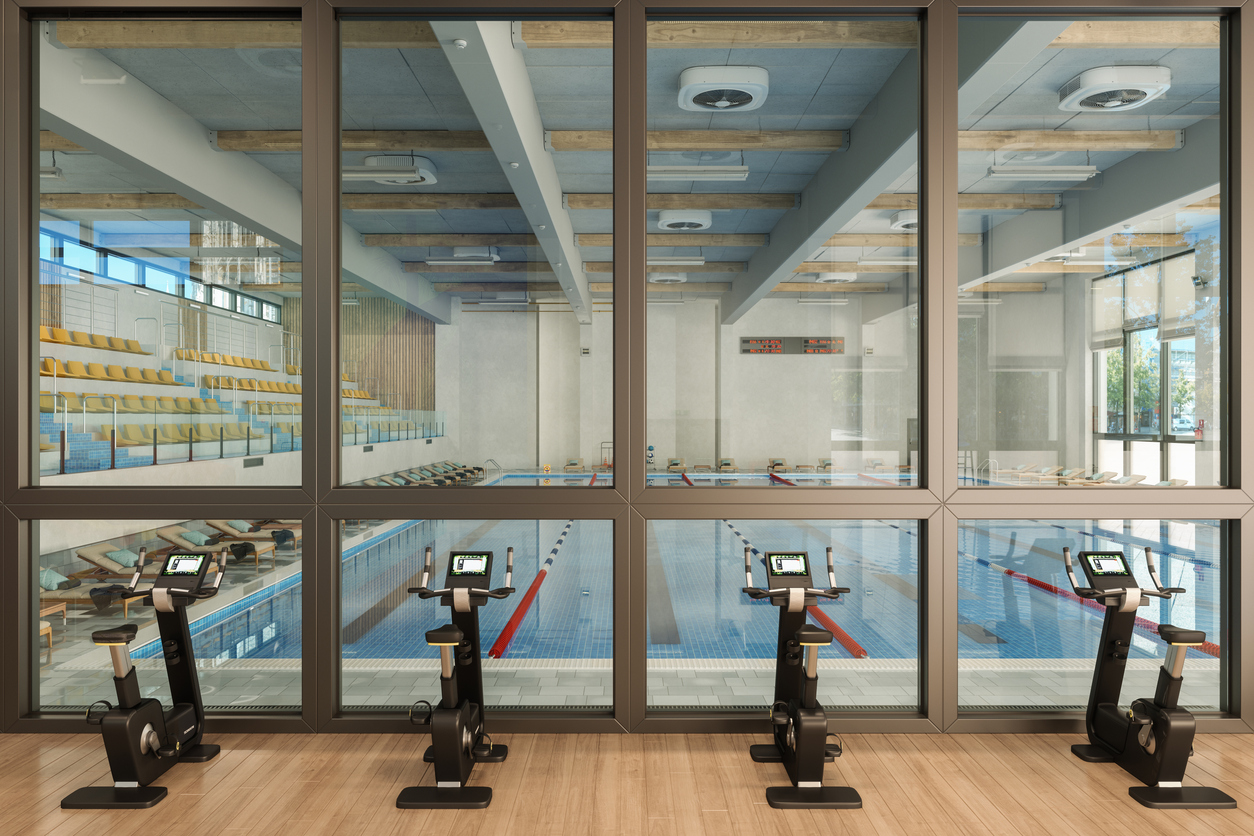PPVS Complete Facilities Management

How Facilities Management Supports the Leisure Industry
From high-energy gyms and swimming pools to cinemas and bustling family entertainment centres, leisure venues across the UK must deliver memorable guest experiences while ensuring safety, cleanliness, and operational continuity. The expectations are high – customers demand not only enjoyable visits but also spotless facilities, working amenities, and seamless service.
Facilities Management (FM) plays a vital role in helping leisure venues meet these expectations. Behind the scenes, FM teams are responsible for maintaining complex systems, coordinating safety protocols, and adapting to changing schedules – all without disrupting the visitor experience. This guide explores the specific facilities management challenges and priorities within the leisure sector, and how specialist FM services help venues deliver excellence day after day.
How Facilities Management Supports the Retail Sector Contents
- Key Facilities Management Priorities in Leisure
- Balancing Maintenance with Customer Experience
- Managing Seasonal and Event-Driven Changes
- Challenges with Conventional Facilities Management in Leisure
- How Specialist Facilities Management Enhances Leisure Operations
- Facilities Management Helps Leisure Venues Thrive
Balancing Maintenance with Customer Experience
In leisure, appearance and atmosphere matter just as much as functionality. Visitors expect venues to be clean, safe, and fully operational – and anything less can lead to negative reviews, poor word-of-mouth, or even regulatory fines. Facilities management must be invisible to the customer while maintaining the highest service levels behind the scenes.
Scheduling Work Around Visitor Flow
To avoid disrupting customer enjoyment, FM teams schedule cleaning, inspections, and maintenance during off-peak times. For example, deep cleaning changing rooms or servicing HVAC systems is often carried out overnight or during early hours before venues open. In larger complexes, works may be phased room by room to maintain access and minimise noise or inconvenience.
Coordinating With Front-of-House Teams
Front-of-house and facilities staff must work in harmony. Whether it’s alerting FM teams to a faulty treadmill, reporting a blocked toilet, or preparing for a VIP event, effective coordination ensures that any issue is addressed promptly and discreetly. Many venues now use digital helpdesk systems or mobile reporting tools to speed up internal communication and task resolution.
Preserving Brand Reputation
Even minor lapses – a broken hand dryer, a flickering light, or an unclean restroom – can lead to customer dissatisfaction. Facilities managers are responsible not just for resolving issues but for proactively spotting and preventing them. Regular inspections, customer feedback loops, and clear escalation procedures are essential tools in protecting a venue’s brand image.
Managing Seasonal and Event-Driven Changes
Leisure venues often operate on a dynamic calendar, with frequent changes in layout, services, and expected footfall. FM teams must be prepared to respond to short-notice events while also planning for long-term seasonal fluctuations.
Preparing for Peak Seasons and Holidays
Leading up to holidays or school breaks, FM teams intensify preparations by reviewing HVAC systems, checking lighting, reinforcing cleaning schedules, and stocking consumables. Temporary staff may also be onboarded to support cleaning and security functions, and contracts adjusted to support higher usage levels across the facility.
Supporting Events and Temporary Installations
Many leisure venues host special events – such as film festivals, fitness competitions, birthday parties, or promotional campaigns – which require temporary equipment, modified access routes, or additional cleaning regimes. FM teams manage everything from installing power for pop-up stands to coordinating waste disposal after the event. Post-event clean-ups and swift reconfiguration are also critical to restoring normal operations.
Flexibility for Changing Site Layouts
Entertainment venues may periodically reconfigure their floor plans – for example, transforming a multipurpose room into a cinema screen or rearranging gym equipment to create space for group classes. Facilities management must be agile, ensuring changes are supported by safe electrical access, fire escape compliance, and customer-friendly design.

Challenges with Conventional Facilities Management in Leisure
Traditional FM models are often too rigid for the leisure sector. Fixed servicing schedules, generic asset management templates, and inflexible contracts can lead to service delays, operational clashes, and poor visitor outcomes.
Leisure venues require a more tailored, hands-on approach. They deal with unpredictable usage patterns, public health sensitivities, and rapid response expectations – none of which are easily accommodated by off-the-shelf FM services. Without sector-specific expertise, traditional FM providers may overlook key needs, such as maintaining temperature consistency in a spa area or ensuring immediate repair of high-traffic toilet facilities.

How Specialist Facilities Management Enhances Leisure Operations
Specialist FM services, like those provided by our team at PPVS, are designed to meet the exact needs of leisure operators, combining technical knowledge with a customer-centric approach. These services focus on protecting both the physical infrastructure and the visitor experience – two equally important parts of leisure success.
Tailored Maintenance and Cleaning Schedules
Leisure FM specialists create bespoke servicing calendars based on usage patterns, peak hours, and operational downtime. This means that essential maintenance – from gym equipment lubrication to cinema HVAC testing – can be conducted at the right time and frequency. Similarly, cleaning schedules are adapted to ensure facilities are spotless before, during, and after busy periods.
Coordination With Specialist Contractors
Many facilities – such as pool chlorination systems or AV setups – require niche technical expertise. FM providers with strong contractor networks can source, manage, and coordinate specialist services as needed, reducing downtime and ensuring quality standards are maintained. By acting as a single point of contact, FM providers also streamline communication and oversight.
Proactive Health and Safety Management
Specialist FM includes routine risk assessments, method statements, fire drills, and emergency planning. This reduces the risk of incidents while ensuring that any regulatory visits – from local authorities, environmental health, or HSE – are met with complete documentation and full compliance. For multi-site leisure operators, centralised compliance tracking and reporting are particularly valuable.
Ensuring Compliance and Safety in Public Spaces
Leisure venues welcome hundreds, sometimes thousands, of visitors every day – and each of those individuals expects a safe, welcoming, and compliant environment. FM plays a frontline role in protecting that expectation.
- Regular Risk Assessments: Facilities teams conduct and update assessments across all public-facing areas, from stairwells and changing rooms to car parks and plant rooms. These reviews inform maintenance plans and guide training for on-site teams.
- Safety Certifications and Documentation: FM providers ensure up-to-date certification for fire alarms, extinguishers, emergency lighting, lifts, gas systems, and electrical installations. Documentation is logged centrally and available for audits.
- Emergency Planning and Testing: FM teams develop and rehearse evacuation plans in coordination with venue staff, ensuring clear communication and well-marked escape routes. First aid supplies and defibrillators are maintained and checked regularly.
Contingency Planning for Equipment and Facility Reliability
Downtime during peak hours can have major consequences – lost revenue, unhappy customers, and reputational damage. That’s why expert FM includes contingency strategies designed to keep leisure venues open and operational no matter what.
- Spare Parts Readiness: Fast access to common replacement parts – such as treadmill belts, cinema projector bulbs, or plumbing fittings – allows for quick fixes and minimal disruption.
- Backup Systems: Where possible, FM teams maintain redundancy – such as backup power supplies or extra equipment – to cover failures during peak periods.
- Rapid Response Teams: Mobile engineers or on-site technicians can respond immediately to issues, supported by digital helpdesk systems and real-time reporting.
- Vendor and Supplier Coordination: Established supply chains ensure that urgent needs are escalated efficiently and delays are minimised, even during high-demand periods.
Facilities Management Helps Leisure Venues Thrive
In the leisure industry, delivering an exceptional customer experience is inseparable from maintaining clean, safe, and fully functional environments. From high-traffic gyms and swimming pools to quiet cinemas and complex entertainment venues, facilities management underpins every aspect of a successful operation.
By working with a specialist FM provider that understands the leisure sector’s pressures and priorities, operators can improve efficiency, reduce downtime, and safeguard their brand. Whether it’s daily cleaning, seasonal planning, or long-term compliance management, expert FM ensures the venue is always ready to welcome its next guest.
If you’re looking for a facilities management partner that understands the demands of the leisure industry, PPVS can help. Get in touch to learn how we can support your venues with tailored, flexible FM solutions.


Get in touch to see how we can help with your Facilities Management.
For general enquiries please fill out the form and our team will be back in touch. Or give us a call or email using the details below.





